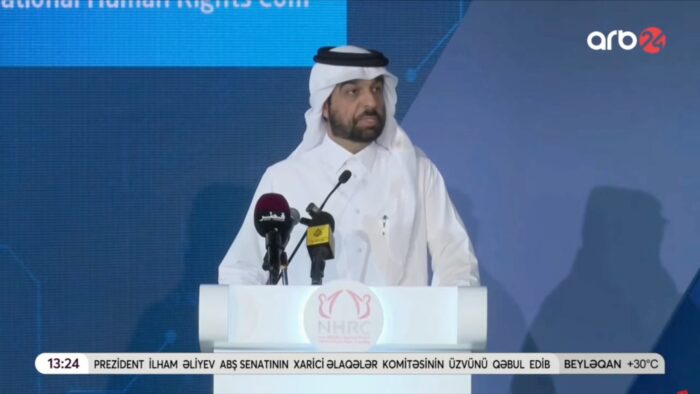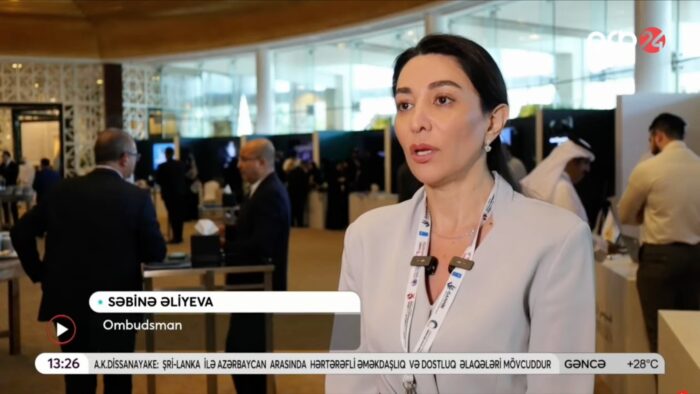On May 27-28, 2025, an international conference titled “Artificial Intelligence and Human Rights: Opportunities, Risks, and a Vision for a Better Future” was held in Doha, the capital of Qatar. Organized by the Qatar National Human Rights Committee and the United Nations, this prestigious event brought together human rights experts, activists, government officials, representatives of international organizations, and specialists in artificial intelligence technologies from various countries around the world.
The purpose of the conference was to discuss the impact of artificial intelligence technologies on social life, the opportunities and risks they create for human rights and democratic institutions, and to offer recommendations for strengthening international cooperation and legal frameworks in this field.
In her opening address, Chairperson of the Qatar National Human Rights Committee Maryam bint Abdullah Al Attiyah emphasized that the rapid development of artificial intelligence presents new challenges in terms of information security, protection of personal data, safeguarding individual freedoms, and defending democratic processes. Alongside technological advances and innovative opportunities, she noted, issues such as algorithmic bias, discrimination, cyber threats, mass surveillance, and misinformation are also major concerns.
During the conference, 12 key topics were discussed in panel sessions. Main discussion subjects included the basic concepts of artificial intelligence, privacy and data protection, preventing algorithmic bias, ensuring freedom of expression, governance and accountability of AI technologies, digital equality, formation of legal and ethical frameworks, impacts on security, democracy, and media freedom.
Azerbaijan also actively participated in this significant international event. The country’s Commissioner for Human Rights (Ombudsman) Sabina Aliyeva, Chairman of the Center for Social Research and Member of Parliament Zahid Oruj, human rights defender Dr. Ahmad Shahidov, and other representatives attended the conference.
The Azerbaijani delegation delivered presentations on the measures taken and experiences gained in ensuring human rights protection in the application of AI technologies and harmonizing national legislation with international standards. The speakers also emphasized the necessity of applying artificial intelligence in a safe and human rights–respecting manner.
It was noted that significant steps have been taken in Azerbaijan to ensure information security, protect citizens’ privacy, guarantee freedom of expression, and promote equal access to AI technologies. In addition, the opportunities and new challenges emerging in the labor market, social welfare, education, and healthcare systems influenced by artificial intelligence were highlighted.
At the conclusion of the conference, participants called on the international community to prioritize the protection of human rights during the development and application of artificial intelligence, uphold transparency, accountability, and fairness principles, and strengthen joint efforts against digital inequality and cyber threats.
Opportunities for cooperation with international and regional human rights organizations were discussed, experience was shared, and preliminary agreements for future collaboration were reached during the event.
It was also reported that within its national artificial intelligence strategy and Vision 2030 framework, the State of Qatar aims to align technological progress with human rights and ethical values, with achievements and implemented projects in this direction presented at the conference.






